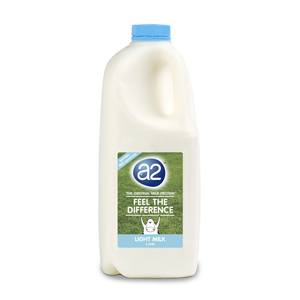 ch was funded by the A2 Milk Company, represents the first human trail conducted of its kind and the findings have been published in the European Journal of Clinical Nutrition, ABC News reports.
ch was funded by the A2 Milk Company, represents the first human trail conducted of its kind and the findings have been published in the European Journal of Clinical Nutrition, ABC News reports.The popularity of A2 milk has been increasing rapidly over the last number of years due to reports that the A2 beta-casein protein is easier to digest than A1 – a view that has often been shunned as scientifically unfounded.
Curtin University recruited 41 people for the eight week study. The participants were instructed not to consume dairy for two weeks, followed by two weeks of either A1 or A2 beta-casein milk. This process was reversed and repeated over the eight week period.
Associate Professor Sebely Pal of the School of Public Health at Curtin University said that those on a diet of A2 milk reported less abdominal pain and firmer stools than those consuming A1.
"The results show there is a difference in gastrointestinal responses in some adults consuming the A1 versus A2 beta-casein type," said Pal.
"The logical next step is to source further funding for more scaled human studies to further understand the digestion differences."
Dairy Australia has chosen not to comment on the findings of the pilot study, and dairy analysts have said that they will not come to any conclusions until a larger, long-term study has been completed.







